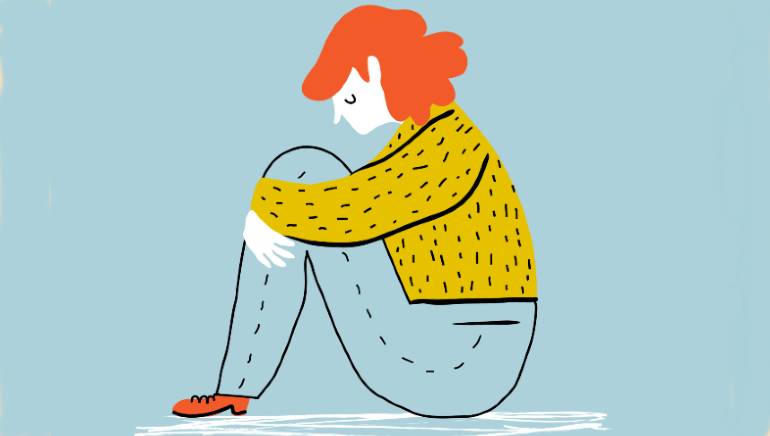Did you know that there is a connection between anemia and depression? Studies have shown that there is a link between the two, and it’s something that you need to be aware of. Anemia can cause feelings of depression, and vice versa. In this blog post, we will discuss the connection between anemia and depression, as well as the symptoms of each condition. We will also provide information on how to get help if you are struggling with either anemia or depression.
Contents
Defining Anemia
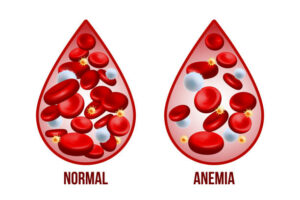 Anemia is a blood condition where there are not enough healthy red blood cells to carry adequate oxygen to the body’s tissues. According to the National Heart, Lung, and Blood Institute, anemia affects more than three million Americans every year. In India, anemia is responsible for 20% of all maternal deaths. Anemia can be caused by a number of things including:
Anemia is a blood condition where there are not enough healthy red blood cells to carry adequate oxygen to the body’s tissues. According to the National Heart, Lung, and Blood Institute, anemia affects more than three million Americans every year. In India, anemia is responsible for 20% of all maternal deaths. Anemia can be caused by a number of things including:
- Chronic disease
- A poor diet
- Heavy menstrual bleeding
- Pregnancy
Anemia can also be caused by certain medications or medical treatments. Chemotherapy, for example, kills not only cancer cells but also healthy blood cells.
Types Of Anemia
There are many different types of anemia, each with its own cause. There are four common types of anemia:
- Iron-deficiency anemia
- Folate anemia
- Pernicious anemia
- Aplastic anemia
- Hemolytic anemia
Now that we’ve looked at the different types of anemia, let’s take a closer look at the symptoms.
Symptoms Of Anemia
The most common symptom of anemia is fatigue. This is because the body’s tissues are not getting enough oxygen. Other symptoms of anemia include:
- Shortness of breath
- Dizziness
- Lightheadedness
- Pale skin
- Chest pain
Anemia can also cause irritability, anxiety, and depression. This is because the lack of oxygen to the brain can cause changes in mood and behavior.
Defining Depression
 Depression is defined as a mental health disorder characterized by persistent sadness and loss of interest in activities. Depression is more than just feeling sad. It is a serious medical condition that can have a negative impact on every aspect of a person’s life, from their personal relationships to their ability to work.
Depression is defined as a mental health disorder characterized by persistent sadness and loss of interest in activities. Depression is more than just feeling sad. It is a serious medical condition that can have a negative impact on every aspect of a person’s life, from their personal relationships to their ability to work.
Depression affects more than 350 million people around the world and is the leading cause of disability. According to the World Health Organization, depression is the fourth leading cause of death for adults between the ages of 15 and 44.
Types Of Depression
There are many different types of depression, each with its own symptoms and causes. Some of the most common types of depression are:
- Major depressive disorder
- Persistent depressive disorder
- Post-partum depression
- Seasonal affective disorder
- Disruptive mood dysregulation disorder
These are just a few of the different types of depression that people can experience.
Symptoms Of Depression
The symptoms of depression can vary depending on the type of depression a person has. However, there are some common symptoms that are associated with all types of depression. These include:
- Persistent sadness or low mood
- Loss of interest or pleasure in activities that were once enjoyed
- Changes in appetite or weight
- Sleep problems (insomnia or hypersomnia)
- Agitation or restlessness
These are just a few of the symptoms that people with depression may experience. It is important to remember that not everyone will experience all of these symptoms. Some people may only have a few, while others may have many.
Link Between Anemia And Depression
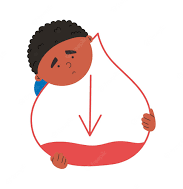 Now that we’ve looked at both anemia and depression, let’s take a closer look at the connection between the two. It is believed that there is a link between anemia and depression. This is because of the way that anemia affects the brain.
Now that we’ve looked at both anemia and depression, let’s take a closer look at the connection between the two. It is believed that there is a link between anemia and depression. This is because of the way that anemia affects the brain.
Anemia can cause a lack of oxygen to the brain, which can lead to changes in mood and behavior. This can cause symptoms of depression, such as:
- Persistent sadness
- Loss of interest in activities
- Changes in appetite or weight
- Sleep problems
- Agitation or restlessness
If you are experiencing any of these symptoms, it is important to talk to your doctor about whether or not you may be suffering from anemia or depression.
Research on the link between anemia and depression is still in its early stages. However, there is some evidence to suggest that anemia may be a risk factor for developing depression. One study found that people with iron-deficiency anemia were more likely to experience depressive symptoms than those who did not have anemia.
Another study found that people with pernicious anemia that was not treated with vitamin B12 injections were more likely to experience depressive symptoms than those who did not have anemia.
More research is needed to confirm the link between anemia and depression. However, if you are experiencing symptoms of depression, it is important to talk to your doctor about whether or not you may be at risk for developing anemia.
Consequences Of Anemia And Depression
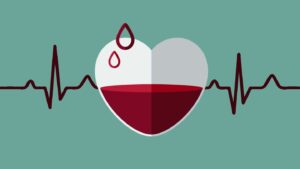 Anemia can cause a lot of problems for people suffering from it. One of the most common problems is depression. Depression is a mental illness that can be caused by many things, but anemia is one of the most common causes.
Anemia can cause a lot of problems for people suffering from it. One of the most common problems is depression. Depression is a mental illness that can be caused by many things, but anemia is one of the most common causes.
There are many consequences of anemia and depression. When someone has anemia, they often feel tired and weak. This can lead to them feeling depressed because they don’t have the energy to do anything.
Anemia can also cause cognitive problems and memory loss, which can make it hard for people to concentrate or remember things. This can again lead to feelings of depression.
There are also physical consequences of anemia and depression. People with anemia often look pale and tired, which can make them feel self-conscious and down about their appearance.
Anemia and depression can also cause problems in relationships. When people are depressed, they often withdraw from social activities and isolate themselves. This can make it hard for them to maintain relationships.
Some people may not realize the connection between anemia and depression, but it’s important to understand how the two conditions can impact each other. If you’re struggling with both conditions, don’t hesitate to seek help. There are many resources available to you. Talk to your doctor about what treatment options are available to you and get started on the path to feeling better.
Treating Anemia And Depression
Anemia and depression are both serious medical conditions that can have a negative impact on a person’s life. If you are experiencing symptoms of either condition, it is important to know the available treatment options.
For Anemia
There are a variety of treatments available for anemia, including:
Iron supplements
Iron supplements are the most common treatment for anemia. They can be taken in pill form or as injections. Iron supplements help to replenish the iron stores in your body and can improve symptoms of anemia.
Vitamin B12 injections
Vitamin B12 injections are another common treatment for anemia. It is important for the production of red blood cells. Injections of vitamin B12 can help to increase the number of red blood cells in your body and aids in the treatment of anemia.
Erythropoietin injections
Erythropoietin is a hormone that helps to stimulate the production of red blood cells. Injections of erythropoietin can help to increase the number of red blood cells in your body by stimulating the bone marrow to produce more red blood cells.
Folic acid supplements
Folic acid supplements in pill form are also a common treatment for anemia. It helps to produce new red blood cells. Taking folic acid supplements can help to significantly improve the symptoms of anemia by increasing the number of red blood cells in your body.
Blood transfusions
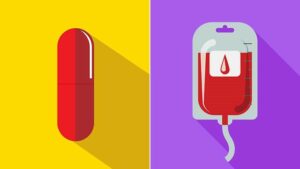 Another treatment for anemia is a blood transfusion. This treatment involves taking blood from another person and transfusing it into your body. Blood transfusions are usually reserved for people with severe anemia who have not responded to other treatments.
Another treatment for anemia is a blood transfusion. This treatment involves taking blood from another person and transfusing it into your body. Blood transfusions are usually reserved for people with severe anemia who have not responded to other treatments.
So, here are just a few of the treatment options that are available for anemia. If you think you may be suffering from anemia, it is important to talk to your doctor about the best treatment option for you.
For Depression
Depression is a serious medical condition that can have a negative impact on every aspect of your life. There are many different types of treatment for depression, including:
Psychotherapy
Psychotherapy is a type of therapy that can be used to treat depression. It involves talking to a therapist about your thoughts, feelings, and behaviors. Psychotherapy can help you to understand and manage your depression. It can also help you to develop healthy coping mechanisms.
Antidepressants
Antidepressants are medications that can be used to treat depression. They work by changing the levels of certain chemicals in your brain. Antidepressants can take several weeks to start working, but they can be very effective in treating depression.
Electroconvulsive therapy
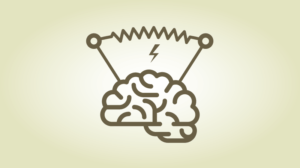 Electroconvulsive therapy (ECT) is a treatment for depression that involves passing electrical currents through your brain. That is why ECT can be an effective treatment for people with severe depression who have not responded to other treatments.
Electroconvulsive therapy (ECT) is a treatment for depression that involves passing electrical currents through your brain. That is why ECT can be an effective treatment for people with severe depression who have not responded to other treatments.
Hospitalization
In some cases, people with depression may need to be hospitalized. This is usually only necessary for people with severe depression who are a danger to themselves or others. Also, hospitalization can provide a safe environment for people with depression to receive treatment.
Anemia and depression are two serious medical conditions that can have a negative impact on your life. There are many different ways that anemia and depression can be treated. So, if you have been diagnosed with either condition, it is important to talk to your doctor about the best treatment options for you.
Conclusion
In conclusion, anemia and depression are two conditions that are often comorbid. So, if you suffer from either condition, it is important to be aware of the potential connection between the two. There is no definitive cause-and-effect relationship between anemia and depression. As a result, these two conditions can certainly exacerbate each other. If you suspect that you may be suffering from either condition, it is important to seek professional help. With proper diagnosis and treatment, you can improve your quality of life significantly.
For more information, please contact MantraCare. Depression is a mental illness characterized by persistent feelings of sadness, hopelessness, and loss of interest in daily activities. If you have any queries regarding Online Depression Counseling experienced therapists at MantraCare can help: Book a trial Depression Therapy session
